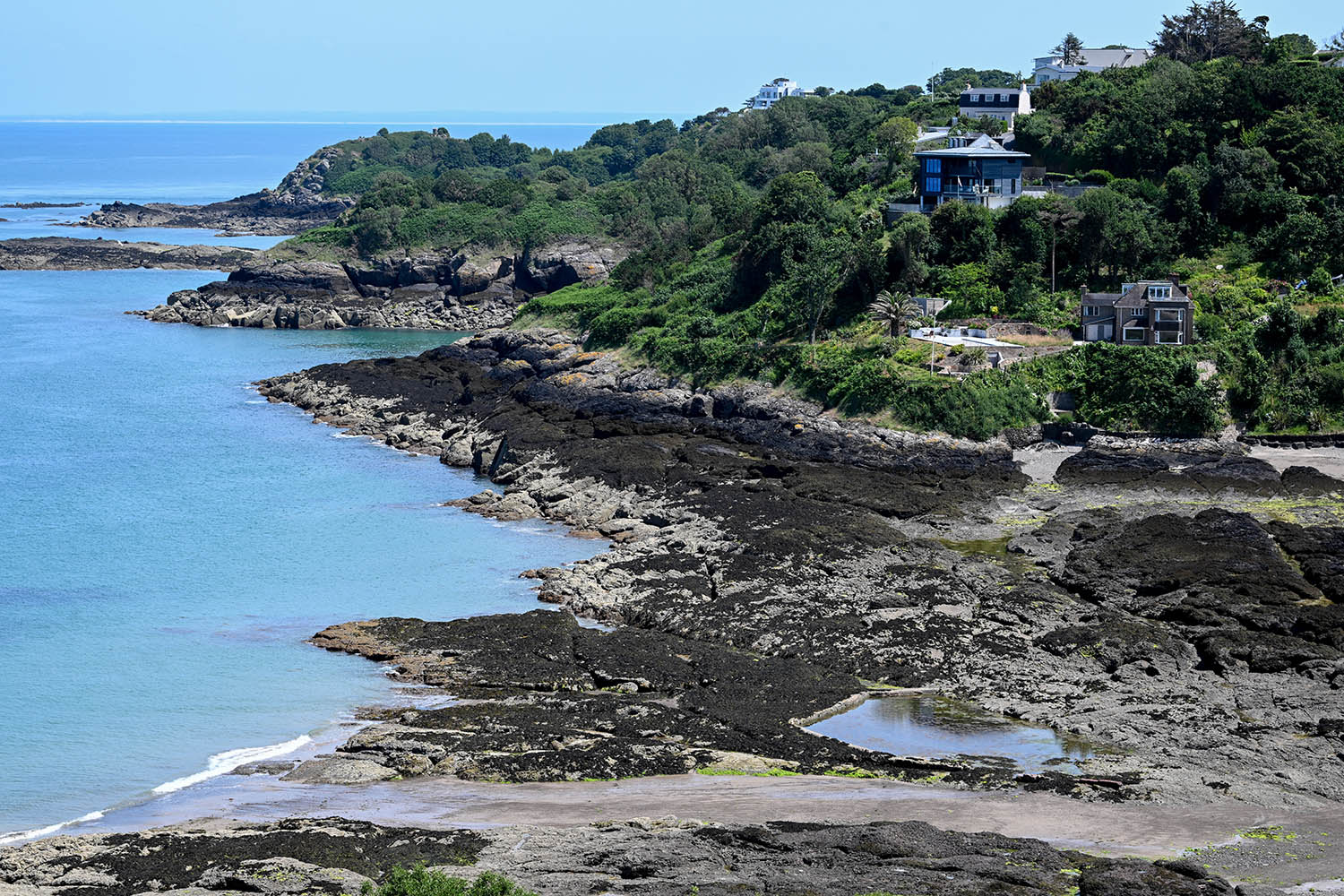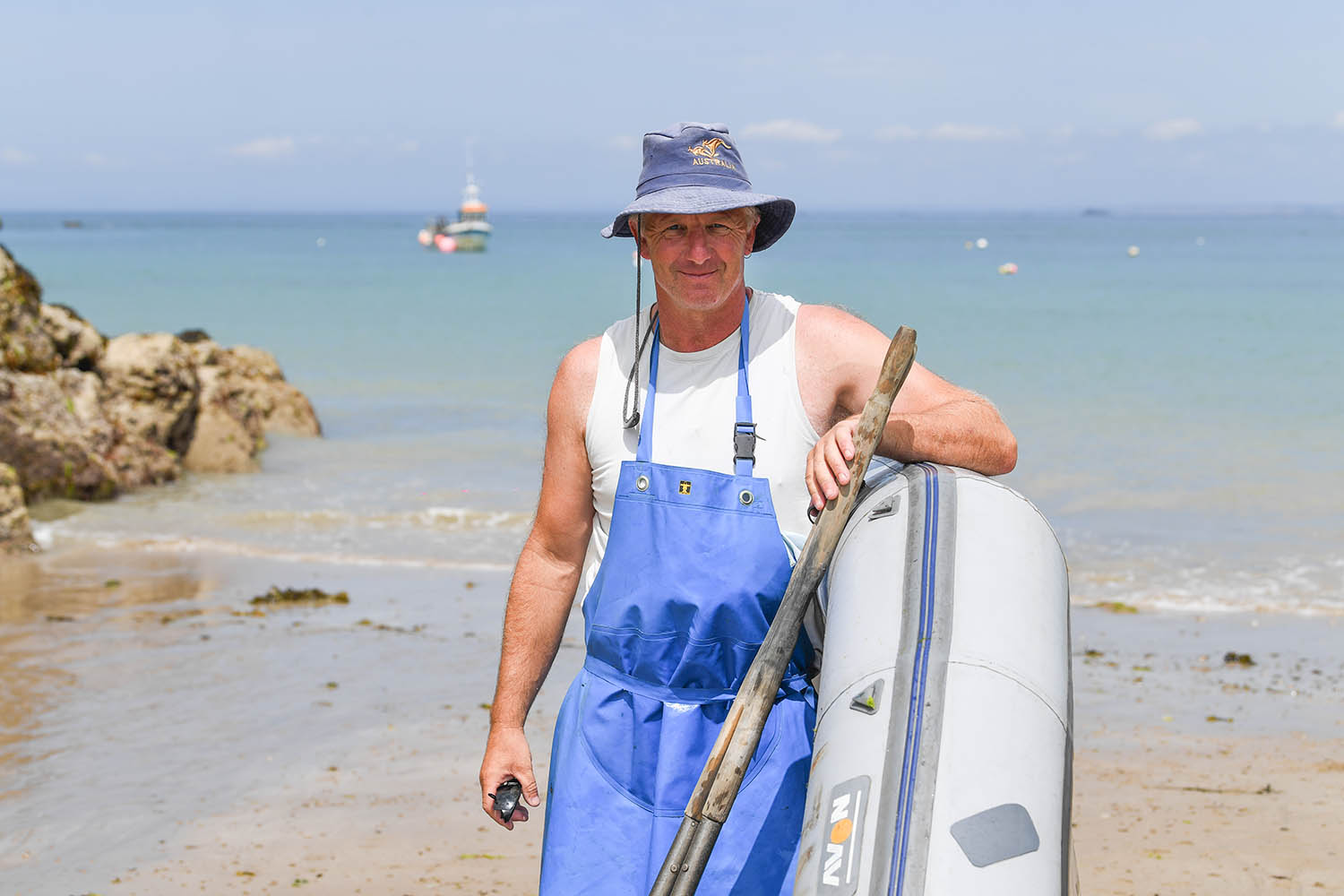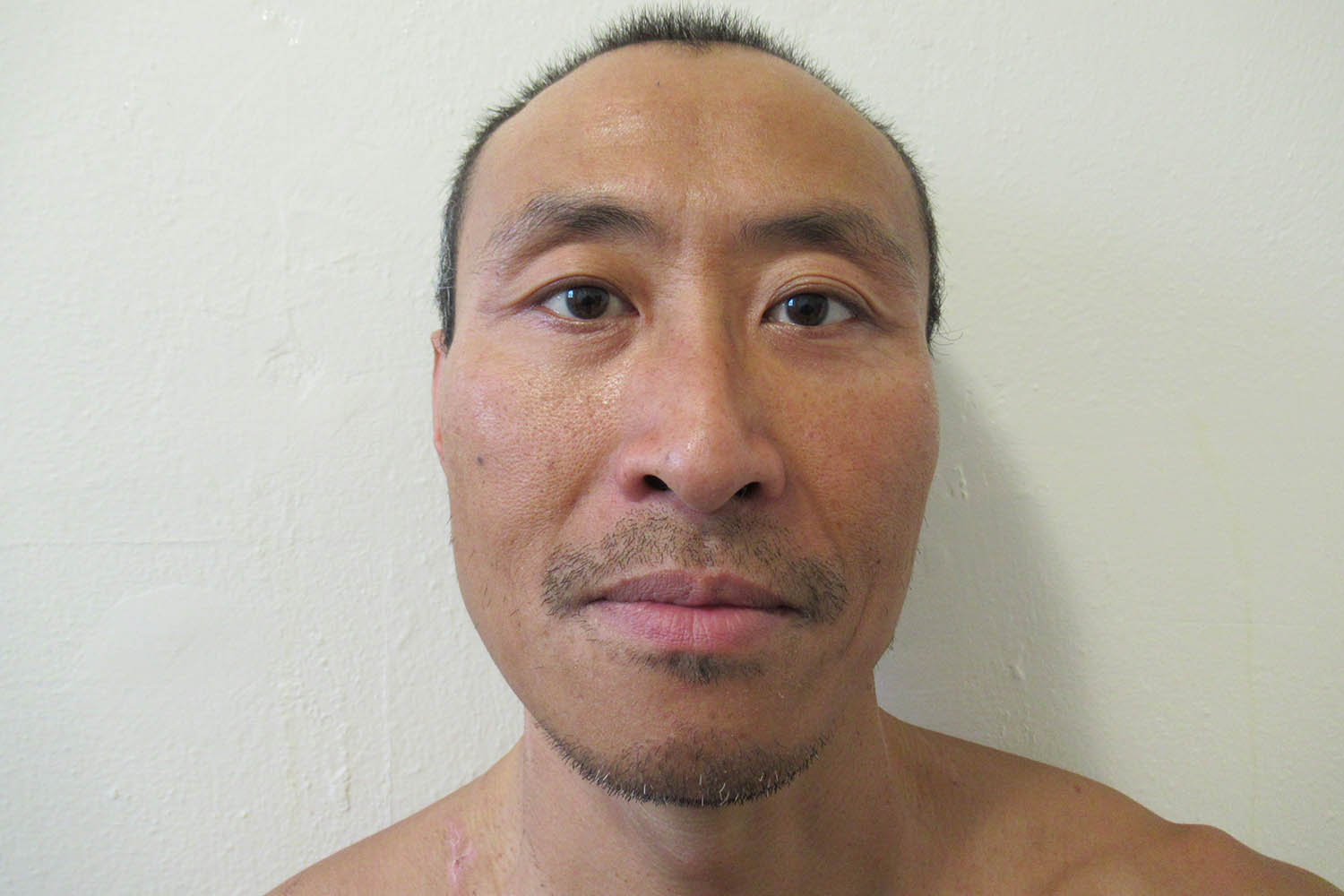A few hours into his swim from the French mainland to the coast of Jersey, David Law says he began to wonder if he was going to make it.
He had set off at dawn, he says, wearing a short wetsuit and with a flotation device attached to his leg. He was carrying a wet bag containing a couple of fruit-and-nut bars and €260 in cash. He was cold and tired, and the island was little more than “a string” on the horizon.
Law says this was a homecoming. According to the 35-year-old, he was born in London and grew up in Myanmar, the son of Hong Kong Chinese aid workers. He claims he was brought to Europe in 2007 on a yacht owned by a friend of his father and has lived in Austria, Switzerland and Germany. In 2023, he decided he wanted to return to the UK.
But Law has no passport or birth certificate and no known relatives in the UK. He is now in jail, having been sentenced to 15 months in prison for entering Jersey illegally.
In September, Law will be eligible for release. He has been recommended for deportation by the island’s court. But as Law is claiming to be British, and there is no evidence of either this or any other nationality, nobody knows where to deport him to.
I am full of buoyancy and hope … I have no doubt that the verdict will be reversed
I am full of buoyancy and hope … I have no doubt that the verdict will be reversed
David Law
Jersey, a British crown dependency but self-governing island, has strong links with France. On a clear day, the headland of Normandy is visible from the east coast. At night, the lights of towns such as Créances and Portbail twinkle in the distance, separated by just 20 miles (32km) of water. It is a point of pride to many islanders that it was already part of the Duchy of Normandy when William the Conqueror invaded England in 1066. In 1204, when England lost most of its continental lands, Jersey opted to remain part of Britain and was rewarded with the right to tax its people independent of the English crown.
King John’s decision birthed a modern tax haven. As the gaudy beachside mega-properties, sports cars, and swanky office blocks suggest, offshore finance is the island’s golden goose.
But if you’re not a millionaire, Jersey’s residency requirements are among the strictest in Europe, with immigrants required to live on the island for 10 years before they can buy property and two years before they can vote.

Jersey's Rozel Bay, where Law came ashore
Illegal arrivals on the island are rare, even if Jersey’s proximity to the French coast makes it a seemingly obvious destination for migrants on small boats. While it is a relatively short distance, it is a treacherous one – Jersey’s coastal waters are infamous for their riptides.
Of the five migrant arrivals to Jersey who have been made public in the last decade, one was granted asylum in the UK and three intercepted and sent back to France; in 2019, a Syrian refugee’s asylum claim in Jersey went all the way to the royal court but was refused, and he was deported.
Newsletters
Choose the newsletters you want to receive
View more
For information about how The Observer protects your data, read our Privacy Policy
In 2016 an Iranian refugee, Amir Merikhi, was discovered in the boot of a car having travelled from France by ferry. He was arrested and jailed before finally being granted asylum by Jersey’s lieutenant governor, the British crown’s official representative on the island.
Sir Michael Birt, the island’s top judge, who was also speaker of Jersey’s parliament, defended the court’s decision to jail Merikhi as a deterrent to anyone who might consider the island a “backdoor” to the UK.
In 2017, three Iranians arrived in nearby Bonne Nuit bay by boat and were detained and returned to France. In 2024, an Albanian man, Drimiand Vuka, was jailed for three years and nine months after bringing three men to neighbouring Guernsey on a boat. Guernsey’s government told The Observer that the three men had been returned to France.
Jersey has vigilant residents and fishing communities who report sightings to the authorities, says Andy Hibbs, who recently retired as local lifeboat coxswain after 34 years.

Andy Hibbs, who recently retired as a lifeboat coxswain, says local residents report sightings to the authorities
He recalls being on the Minquiers, a rocky outcrop 9 miles south of Jersey, about 20 years ago when two men who appeared to be north African arrived on a blowup kayak, clutching a French-language travel brochure showing the ferry route from France to Jersey. “[One] walked up to me and said: ‘Where are we?’”
Twenty years on, Claire Foster and her husband, Nick, were preparing dinner at their home in September 2024 when they heard someone shouting for help on the headland.
Claire brought Law up into their front room, wrapped him in a towel and gave him a mug of tea. “He looked like he had been in the water for a long time,” she recalls. Paramedics took him to hospital, where he was questioned by officers from Jersey’s customs and immigration service.
When I visited Law in prison last month, he told me that during his trial earlier this year, the judge, when told Law had covered the distance by doing breast stroke, raised his eyebrows in disbelief. He is not alone – many islanders suspect Law may have been dropped off by a boat in waters close to the coast.
At HMP La Moye, the only prison on the island, Law fields regular questions from curious inmates, a third of whom are serving time for drug offences and see him as something of a curiosity.
He does not know what will happen to him next. Pierre Makhlouf, legal director of the nonprofit Bail for Immigration Detainees, has said that if the authorities do not release him, Law may be able to appeal to the European court of human rights, which has jurisdiction over Jersey.
To some, Law’s case is the culmination of longstanding concerns about the island’s immigration policies. Bram Wanrooij is a local teacher who founded a charity, Jersey Calais Refugee Aid Group, in 2015. He advocated for Merikhi. Wanrooij said that in his experience Jersey “was making it up as it went along” when it came to asylum policy.
A spokesperson for the Jersey customs and immigration service said the island has clear policies on undocumented arrivals at its borders and asylum claims, and “each case is assessed individually”.
“Asylum claims are always processed and considered according to our immigration rules and international obligations. Anyone who enters Jersey illegally may be arrested and prosecuted, and could face a prison sentence, removal or deportation.”
One morning in May, an unexpected letter popped through Claire Foster’s door from HMP La Moye. In neat handwriting, Law thanked her for taking care of him when he arrived. “It appears to me that most people find [my swim] simply too incredible,” he wrote.
“What has happened has not made my life miserable or my heart bitter. In fact, I am full of buoyancy and hope … I have no doubt that the verdict will be reversed. I have started planning for the future. I can imagine living in London. Catching up with some formal education. Settling down with a good girl and start[ing] a family.”
Photograph by David Ferguson/The Observer


